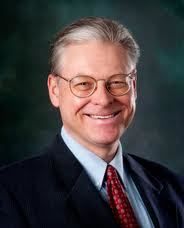Click here to subscribe today or Login.
Until Donald Trump enjoyed a commanding lead in the Republican presidential polls, the GOP ignored him and his denunciation of illegal immigrants from Mexico as “rapists and criminals.” But Trump isn’t going to disappear anytime soon.
The billionaire is polling nationally at 30 percent of the Republican primary electorate, according to the most recent poll by Monmouth University. It’s a new high for the real estate mogul, narrowly topping the 28 percent support he registered in a Quinnipiac poll late last month.
Trump’s huge lead has forced his rivals for the Republican nomination to go on the attack. Texas Gov. Rick Perry, the harshest critic, has called Trump a “dangerous extremist” who has whipped up a “toxic mix of demagoguery, mean-spiritedness and nonsense” and is spreading a “cancer on conservatism.”
To be sure, Trump is not alone. Throughout American history, demagogues emerged among presidential hopefuls, some capable of reaching 13 percent of the electorate. Many of them appealed to the same type of voters that Trump is garnering: a largely rural, anti-immigrant population that is angry at the Washington establishment and admire a candidate who purports to say what he believes rather than what the voters want to hear.
Demagogues also emerge during periods of economic and social panic. William Jennings Bryan, for example, was the Democratic nominee for president in 1896. Railing against the gold standard and the East Coast elites, Bryan appealed to farmers and other voters worried about the ills of the Industrial Revolution, the growth of cities and massive immigration. He was also the only firebrand who came remotely close to being elected.
Similarly, Huey Long, the power-hungry senator and corrupt governor from Louisiana, and Detroit radio priest, Charles Coughlin, capitalized on the financial and social distress of the Great Depression. Long used a fiery populism to champion his “Share the Wealth” program, but was assassinated before he could run for the presidency in 1936. Coughlin, like Trump, exercised a remarkable ability to drive controversy through the news media. Millions of terrified Americans were attracted by his message across the airwaves, which attacked capitalism as well as then-president Franklin D. Roosevelt’s New Deal reforms. Calling for heavy taxes on the rich and the nationalization of industry, the charismatic priest’s broadcasts were filled with anti-Semitic slurs against Jewish bankers and support for the fascist policies of Benito Mussolini and Adolf Hitler.
Roosevelt considered Coughlin a serious threat until the United States entered World War II, drastically diminishing his political influence and ending whatever hopes he might have had of running for the presidency.
The social turmoil of the 1960s gave rise to the race-baiting former Alabama Gov. George Wallace. Wallace, who abandoned the Democratic Party over civil rights, ran for president in 1968 as a third-party candidate. Relying upon white Southern voters unhappy with the demise of segregation, Wallace carried five states in the general election.
Of all the presidential-hopefuls-turned demagogue, Ross Perot most closely resembles Trump. Perot, like Trump, was a wealthy businessman who took advantage of his anti-politics credentials as an outsider.
Perot focused on deficits and free trade with Mexico, capitalizing on fears of American jobs going to that Central American nation. Trump employs the same rhetoric. He jumped to the top of the GOP field by rallying voters against immigrants from Mexico and low-wage workers in China, whom he blames for lost jobs and stagnant wages in the United States.
Perot’s message was so appealing to conservatives that he received 19 percent of the vote in the 1992 presidential election as a third-party candidate.
Donald Trump is a product of the same economic and social distress that gave rise to these earlier demagogues. He plays on the worst fears of the electorate while filling the important void of immigration reform that neither party is addressing.
What has made him so popular is the media, which has transformed the political dialogue in this country into a sensational form of entertainment. No doubt Trump, who has an exceptional ability for self-promotion, will continue to make headlines throughout the primaries.
But in the end, Trump, like the earlier demagogues, will fail in his bid for the presidency because he lacks the substance and vigorous economic policy that voters expect of a serious candidate.





